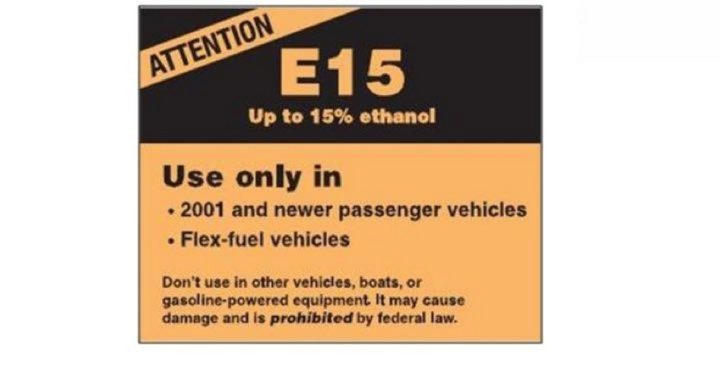
In the 2016 Iowa Republican caucuses, only two candidates — Senator Rand Paul of Kentucky and Senator Ted Cruz of Texas — opposed the federal government mandate requiring biofuel use. The other 15 Republican hopefuls lined up, as they usually do — despite free-market rhetoric — in support of a government requirement that boosts a government mandate that favors Iowa’s politically potent corn farmers.
While the government quotas for ethanol gasoline are quite popular with those farmers who benefit financially from the mandates, ethanol is rather unpopular with the consuming public. It is quite common to see stores that offer gasoline for sale inducing customers with signs that read, “Alcohol-free gasoline.” Rarely does anyone see signs that boast, “Ethanol Sold Here.” Ethanol gasoline simply does not match the miles per gallon that one receives from regular gasoline.
Then-candidate Donald Trump was one of the 15 who promised to “protect” ethanol. In fact, he vowed to increase production of ethanol.
Cruz, on the other hand, took a great amount of flak for his opposition to the government mandate, but still managed to defeat Trump in Iowa.
Now, ethanol backers are angry with Trump for the action of his Environmental Protection Agency (EPA) director, Scott Pruitt, whom they contend is breaking the president’s promises to increase government support for ethanol. The two senators from Iowa, both Republicans, are among those who contend the government should continue to intervene in support of ethanol.
Chuck Grassley, Iowa’s senior senator, asserted, “This seems like a bait-and-switch. Big Oil and oil refineries are prevailing, despite assurances to the contrary.” The junior senator, Joni Ernst, who ran as a free-market conservative in winning her own election last year, shared Grassley’s disappointment, telling Trump in a letter, “It is my hope that your EPA has not forgotten about the pledges that were made to my constituents and to farmers across the country.”
The ethanol lobby contends that Scott Pruitt is helping oil producers at the expense of farmers. Brooke Coleman, executive director of the Advanced Biofuels Business Council, stated, “The White House needs to rein in the EPA before the agency tramples the president’s rural base — and his promises to voters. I would be surprised if those in the White House realize the depth of [Pruitt’s] attacks on the Renewable Fuels Standard.”
Michael McAdams, president of the Advanced Biofuels Association, appears to be placing the blame for Trump’s policy change on his subordinate, Pruitt, charging that the EPA director has gone “rogue.” McAdams said that rather than moving to reduce government support for ethanol, it was Pruitt’s job to “implement the vision of the president who says he supports biofuels.”
This is, of course, typical of those who argue for government intervention in the form of subsidies or mandates to help their favored industry. If a person favors the end of a subsidy, a tax credit, or a mandate, then that person is “against” their industry. This would be like saying that if the government does not give money to the Episcopal Church, they must be “against” the Episcopal Church.
Writing in 1850, French philosopher Frédéric Bastiat observed, “Under the pretense of organization, regulation, protection, or encouragement, the law takes property from one person and gives it to another; the law takes the wealth of all and gives it to a few — whether farmers, manufacturers, shipowners, artists, or comedians.”
The EPA moved last week to consider a potential reduction in annual quotas for biodiesel and ethanol, which touched off a storm of criticism against Pruitt. They argued that this action followed heavy lobbying by the oil industry, which seeks to reduce government-mandated biofuels targets. Critics of Pruitt insinuated that his motivation was to obtain backing from refiners and oil producers in his home state of Oklahoma (where he was twice elected attorney general) if he were to run for the U.S. Senate in 2020, when incumbent Senator Jim Inhofe is expected to retire. But before Pruitt was selected by Trump to take over the EPA, he had already challenged the ethanol quotas as “unworkable” and part of a “flawed program.”
Perhaps the best practice for the government would be to get out of deciding between the ethanol producers and the oil industry, and just let consumers decide which gasoline they prefer. In other words, let the free market decide.



